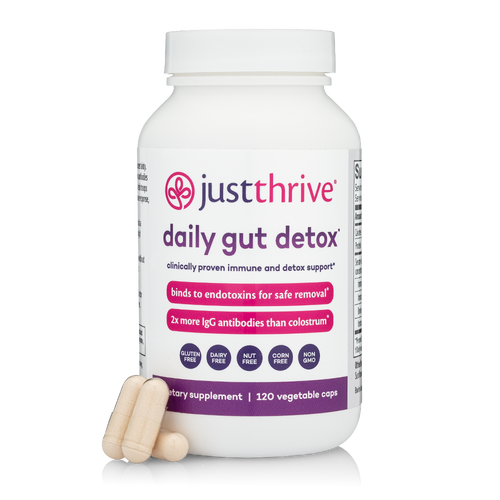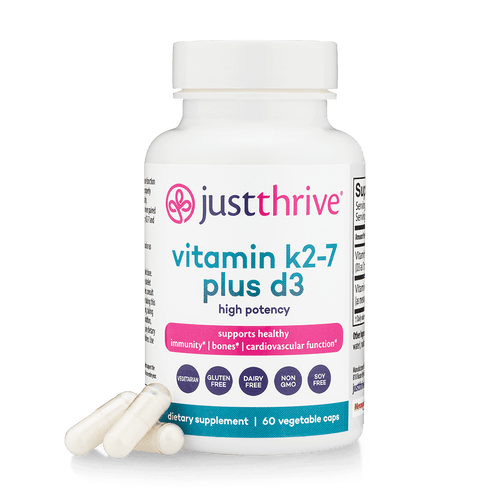The Point of Pesticides Is Killing Things
Pesticides exist to control and kill various pests, weeds, insect infestation and diseases. And – There are a staggering amount of pesticide types for a wide array of specific targets.
Unfortunately…
The impact of pesticides rarely stops after their chief target has been handled. These purposely toxic chemicals disrupt and damage several of your body’s vital systems. And that leads to some seriously scary health consequences – Things like short-term adverse effects, as well as chronic conditions.
Even worse, the impact of pesticides can sometimes be felt months or years after exposure.
Read on for the ways in which these common toxins can wreak havoc on your wellness…
5 Ways Pesticides Threaten Your Health
Long-term low-level pesticide exposure can trigger a staggering cluster of symptoms along with devastating threats to your overall health and wellness. Because pesticides can affect you at a systemic level, they can cause effects that seem unrelated. That makes it very hard to uncover the root of pesticide-related health problems.

1. Cancer
Pesticide exposure interferes with dozens of biochemical processes in your body. In fact, some pesticides are well-known as endocrine-disrupting chemicals (EDCs) that do exactly what the name says: They disrupt your endocrine system. That system controls your hormones and regulates countless biological processes. So it’s not surprising that pesticides have been linked with several kinds of cancer, including non-Hodgkins lymphoma and leukemia.
2. Obesity
Along with increasing cancer risk, EDCs also promote obesity. EDCs instruct your body to store fat and hold on to it no matter what. That’s why scientists call these chemicals “obesogens.” They can literally cause obesity no matter how healthy you eat or how much you work out. These pesticides make it extremely difficult to not gain weight… and nearly impossible to lose weight.
3. Immune System Disorders and Autoimmunity
Many pesticides can trigger immune system disorders. Exposure to carbamate pesticides, for example, causes immune malfunctions that increase your risk for several kinds of cancers, infectious diseases, and autoimmune conditions. Other pesticides, such as atrazine, disrupt specialized immune cell functions. And EDCs are known to interfere with production of immunoglobulins, your body’s first-line defenders against a wide variety of threats.

4. ADHD
Pesticides, including glyphosate, can alter your brain function by increasing levels of brain chemicals like glutamate. These neurotransmitters over excite your brain cells, so it’s harder for them to function properly. Scientists recently discovered that people with ADHD have elevated glutamate levels. And there’s a growing pile of evidence linking pesticides directly to ADHD diagnoses.
5. Chronic Gut Problems
Here’s a “fun” fact: Glyphosate, the world’s most-used pesticide, is a patented antibiotic. That means one of its key functions is to kill bacteria. And that’s a very bad thing. Because glyphosate destroys the beneficial probiotic bacteria in your gut, which leads to dysbiosis – a condition where harmful pathogenic bacteria outnumber probiotic bacteria in your gut microbiome. That’s why even a little exposure to pesticides like glyphosate can cause severe intestinal distress. They can trigger chronic diarrhea, gas and bloating, irritable bowel syndrome (IBS), and other long-term gut issues.
Unfortunately you can’t completely avoid pesticide exposure, though you can minimize it. But it’s virtually impossible to live life without coming into contact with pesticides. But that doesn’t mean you can’t take proactive steps to protect your health.
You Can’t Avoid Pesticide Exposure
No matter how hard you try, you simply can’t avoid all exposure to pesticides. You get exposed to these chemicals every day – even if you don’t realize it.
You encounter pesticides every time you…
- go to a public park
- take your kids to the playground
- watch – or coach – a soccer practice
- walk around a neighborhood with manicured lawns
- spray inside or outside for ants or other bugs
- play golf
And that’s just external exposure. Every time you eat or drink water, you’re probably exposed to minute levels of pesticides. Such small amounts they wouldn’t affect anything… until you start to add them all up. Even if you eat primarily organically grown foods, you can still be exposed to pesticides due to wind drift and contaminated groundwater.
Think about how many times you eat every day, and how many different foods and drinks you consume each time. Then multiply that by weeks… months… years… a lifetime. You can see how even the tiniest, non-detectable amounts could build up into a serious health threat.
That’s why you must – Repeat MUST – take steps to help your body get rid of these toxins every day.

How Your Body Deals with Toxins
Your immune system uses special cells called immunoglobulins (antibodies) to constantly look out for threats – including pesticides. Once those immunoglobulins find and identify a toxin, they work to neutralize it and remove it from your body.
But when your immune system gets overwhelmed by constant pesticide exposure, it may need extra support to keep fighting and keep you healthy. The best way to provide that support is with supplemental IgG – specifically serum-derived bovine immunoglobulins. Taking these clinically studied immunoglobulin supplements help your immune system do its job: keeping you safe from all kinds of threats. And just like the immunoglobulins created by your immune system, serum-derived bovine immunoglobulin supplements bind and neutralize toxins.
Support Your Body’s Main Defenders with Ultimate IgG
Just Thrive Ultimate IgG drives vibrant immune health with a fresh supply of clinically studied serum-derived bovine immunoglobulins.
These natural immunoglobulins support your immune system and help it maintain healthy function even in the face of everyday threats.
Give your immune system the daily support it needs with Just Thrive Ultimate IgG.










